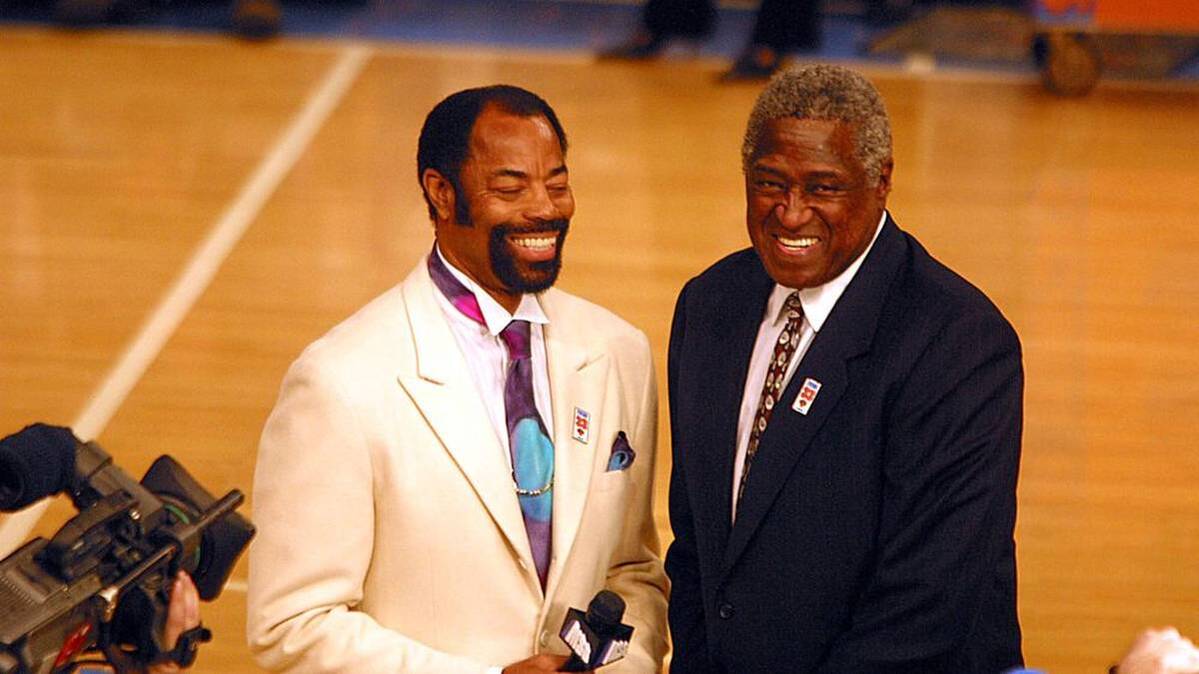“The Captain” Willis Reed shaped the golden years of the NBA tradition team New York Knick, especially a legendary moment went into history. The basketball idol died two years ago.
The most famous moment of his career is a winged word in America, until today.
It was May 8, 1970, the day of the seventh and last game of the NBA finals between the New York Knicks and the Los Angeles Lakers in a venerable Madison Square Garden. The game was not yet kicked off when a jubilee storm suddenly broke out, as the most famous sports and concert hall in the world had never experienced again.
The fans in the garden had spotted a great man who came out of the player tunnel with a face -frowned face. It was Willis Reed, the Knicks team captain. And he signaled: I play.
It was the legendary “Willis Reed Moment” that defined the myth of a basketball icon – and the symbol of a lasting legacy that had a comparatively short career beyond Reeds. And about his death today two years ago.
Willis Reed 1970: A moment for eternity
In order to understand the historical moment, you have to know: Willis Reed Jr. couldn’t have played that day, at least not at the usual discretion of a normal mortal.
In game 5 of the series, the 2.08 meter tall center had seriously injured in a duel with the great Wilt “The Stilt” Chamberlain, suffering a painful muscle tear between the hip and thigh. However, Reed wanted to be at no price from helping to help the Knicks to their first championship title.
With a combination of willpower and a strong pain reliever syringe, he started and triggered relieved ecstasy: “I thought: Now I know how an earthquake feels,” Reed later looked back on the public reaction.
The Knicks captain played 27 minutes, his measurable influence on the game was low with four points. However, the inspiring effect on the teammates around top scorer Walt Frazier was invaluable: at the end of the evening there was an 113:99 victory and the first championship title of the Knicks. And a hero legend for eternity.

The Knicks master heroes Willis Reed (right) and Walt Frazier during a reunion in 2011
Reed led the New York Knicks to the two NBA championship titles
Reed’s merits for the Knicks are even more comprehensive: As a captain, he led the franchise through the most successful time of her history, won his second master ring in 1973, both times he was also chosen the MVP of the finals, also the most valuable player in the league in 1970.
The technically experienced Big Man was the leading figure of the Knicks, sporty and human, also inspired by his personal ascent from the less privileged farmer’s son from the southern Louisiana at the time of racial segregation to the celebrated sportsidol of the “Big Apple”.
Despite his characteristics by the state-institutionalized racism, Reed was less politically than his rival Bill Russell or later Kareem Abdul-Jabbar. In a also famous episode from the 1970 master season, he had to be accused of worse.
A captain with authority
At that time, a dispute settled a dispute between his white Hall-of-fame colleague Bill Bradley and Cazzie Russell, who had come to the training ground with anger in her stomach-he had been threatened with a weapon during a police control on the grounds that an African American, who was supposed to be similar to him, had fresh out of prison.
Russell left his anger about “racial profiling” through rough training on his white teammates, Reed step in – and Russell insulted him with the words: “Be quiet, uncle Tom”. A serious insult to an African American who makes Buckele (based on the slavery novel “Uncle Toms Hütte”).
Reed replied that Russell should be able to “or this uncle Tom will step in a few people in the A ****”. Russell apologized that the great authority of “The Captain” did not miss its effect.
Second career overshadowed by tragedy
A year after the second title with the Knicks 1973 – the last one for the traditional team – Reed returned at the age of only 31 after too many injuries had affected his performance too much.
As a coach (for the Knicks and the then New Jersey Nets), he was less successful, more successful was a commitment as a sports manager and general manager of the NETs from 1989, in which one of Reed’s blackest hours fell: the tragic accident death of his top player Drazen Petrovic in Germany in 1993. “It is as if I had lost a son at a subsequent press conference.
Reed remained active at the NETs until 2004, and until 2007 he filled out the managing director job at the New Orleans Hornets in his home state before retiring from his job. “The Captain” Willis Reed died of heart failure on March 21, 2023 at the age of 80.